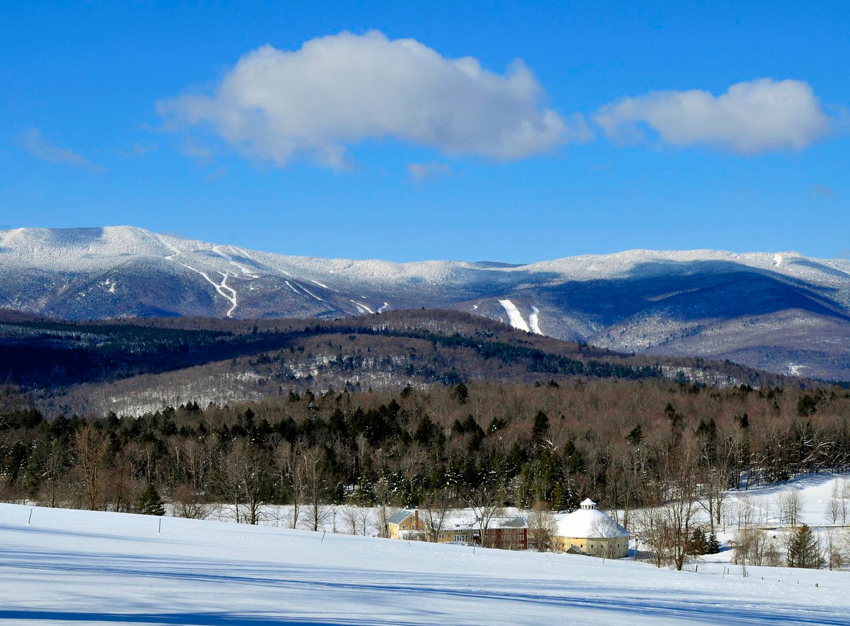New England Ski Areas Take a Stand Against Climate Change

Ski Butternut. Photo by Matt Sawyer, provided
You may be suffering from the summer heat, New England, but your ski resorts are readying themselves for winters ahead. More than 100 ski areas across the country—including around 20 New England mountains, like Attitash, Killington, Loon Mountain, Stowe, and Catamount Ski Area—signed a “Climate Declaration” requesting a national strategy from the government on climate change issues.
So what’s so unique about this petition? These ski areas aren’t political pundits or environmental activists—they’re businesses. They view addressing climate change as an economic necessity. Not that surprising, since they run their businesses on snow-covered peaks in the great outdoors, giving hearty New Englanders a respite from hibernation (and a way to burn tons of calories). But many other local companies have signed on too, and they don’t require several feet of fresh powder to turn a profit. Other heavy hitters in New England include Ben & Jerry’s, Timberland, and Stonyfield. Local athletic company Burton Snowboards added its name to the list, in good company with national giants like Nike, Intel, Adidas, and Ikea.
The Climate Declaration comes from Boston-based business sustainability group Ceres. Its advocacy project BICEP, or Businesses for Innovative Climate and Energy Policy, launched the declaration and got the National Ski Area Association (NSAA) involved. The NSAA already has its own sustainability initiatives, so it wasn’t much of a leap for it to lend its support.
“The ski areas have been sensing the weather variability and the climate instability and it’s affecting their bottom line,” says BICEP director Anne Kelly. “If they don’t have snow, they won’t have customers.” And, Kelly says, the early response from mountains has been huge. “Right away a whole bunch of New England ski areas jumped on board. Many have lost revenue,” she explains. “New England in 2012 basically didn’t get a winter. It was the winter that wasn’t. That had a huge impact on New England ski areas and they just said, ‘This isn’t working for us anymore, and we’ve got to collectively come together.’”
New England ski resorts can attest to that. “Two reasons for signing this—as responsible members of the human race we are concerned about climate change, and as a ski resort we are very dependent on the climate to have a good business,” says Win Smith, president of Vermont’s Sugarbush Resort and the former executive director of Merrill Lynch. “It’s really both an environmental issue as well as good business economics.”
Massachusetts’ Ski Butternut marketing director Matthew Sawyer agrees. “I think it’s a real taste of reality. Our industry is just one of the first that has been dramatically impacted,” Sawyer says. “Anything we can do to prevent this from moving further and faster is better. We want to educate our clients and be dedicated to finding solutions, and we want to make addressing climate change a national, if not an international, issue in order to facilitate change.”
These types of business movements suggest, perhaps, that the nation is finally accepting climate change not as an alarmist or partisan idea, but as a physical and financial reality that affects local companies—and your ski weekends and winter workouts.

Sugarbush resort. Photo by Sugarbush/Jeb Wallace-Brodeur, provided


